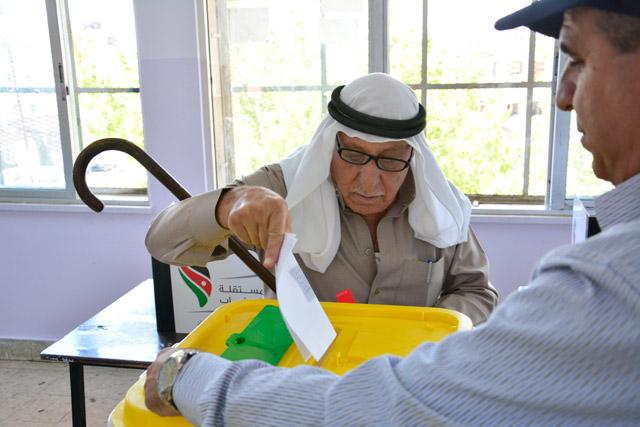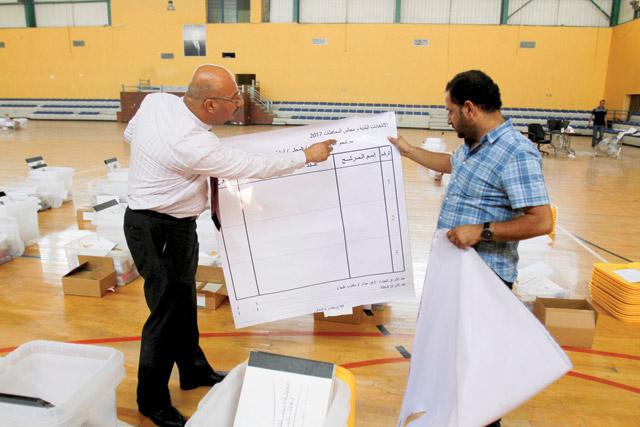You are here
Vast majority of women abstained from elections, IEC estimates
By Laila Azzeh - Aug 16,2017 - Last updated at Aug 16,2017

A woman casts her vote at a polling station in Amman on Tuesday (Photo by Osama Aqarbeh)
AMMAN –– Despite the significance of their participation as candidates in the municipal councils and governorate councils, Jordanian women showed up in “weak” numbers to vote in Tuesday’s elections, according to official figures.
While they make up around 53 per cent of the 4.1million citizens eligible to cast their votes in the local twin elections, “only a small percentage of women headed to the polling stations on Tuesday to vote”, said Samar Hajj, commissioner at the Independent Elections Commission (IEC).
“The percentages of women’s participation also differ from one governorate to another, with the highest recorded in Mafraq — 16 per cent — and the lowest in Amman – 3.42 per cent,” she noted, citing figures recorded up until 3pm.
In a seminar organised by the IEC on Tuesday, she called on women to practise their right to vote and to seize the opportunity provided by the elections, whether as candidates or voters, to serve their local communities and to take decisions that contribute to improving the status of women, the Jordan News Agency, Petra, reported.
For Amani Jaber, a 43-year-old worker from Amman, Jordanian women, like their male peers, are “pessimistic about the ability of the elections to bring about the desired change”.
“Women are not the only ones who are reluctant to take part in the elections. Many of my male colleagues and family members refrained from voting because they do not see the use for it. Economic difficulties top the list of their concerns and the new councils will not address that,” she told The Jordan Times.
Arwa Al Jarhie, the youngest candidate in the Aqaba governorate councils, noted that women and men alike are still “ sceptical about the ability of women to have an effective role in the decision-making process, despite the fact that women have always proved to be givers and well-acquainted with the needs of local residents”.
“It is still a patriarchal society. When I first announced my willingness to run for the governorate council, I was met with scepticism and dismay. Only those who know me well and know how dedicated I am to improve the situation of youth, especially women, have shown their support,” the 26-year-old told The Jordan Times.
She said that the overall turnover in Tuesday’s elections was “poor”, a trend she attributed to the performance of previous municipal councils.
“It is difficult to convince people that this time things will be different; but I keep saying that electing candidates based on tribal affiliations is what caused the poor performance of previous councils. Change comes when candidates are elected based on their programmes and abilities,” Jarhie said.
On the other hand, Sanaa Abweh, a 34-year-old worker from Irbid, said Jordanian women have a “duty today to engage in political life, in order to ensure a better environment for women and citizens in general”.
“I voted today and encouraged all those around me to do so. We cannot sit back and continue to complain about how things are being handled,” she added.
Related Articles
AMMAN — Voting for the decentralisation and municipal elections concluded late Tuesday night with a 31.7 per cent voter turnout rate of some
AMMAN — The Independent Election Commission (IEC) on Wednesday announced the final results of the decentralisation and municipal elections.S
AMMAN — Some 4.1 million Jordanians are eligible to cast their votes at the local and municipal elections today.In Tuesday's elections, Jord


















